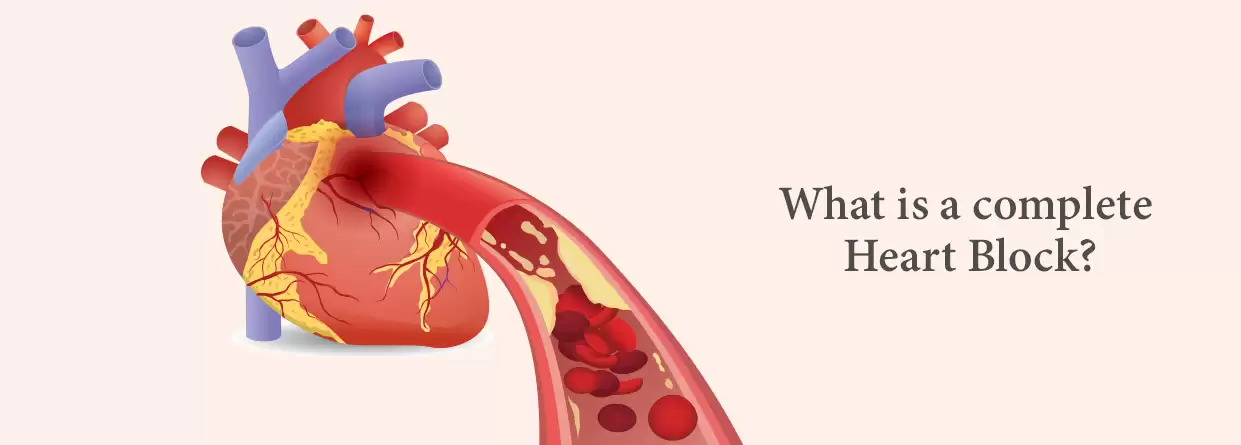Heart Block
Heart Block is a problem that occurs with the heart’s electrical system. This system controls the rate and rhythm of heartbeats. It is called an AV block as the electrical signals that stimulate heart muscle contractions are partially or blocked between the atria and ventricles.
The AV node is the gateway to the ventricles. The AV node passes the signals onto the bundle. The left and right bundle branches divide the bundles and conduct the impulses toward the apex of the heart.
The signals are then passed on to fascicular fascicular branches, Heart block is a group of diseases characterized by the presence of an obstruction or a BLOCK in the heart’s electrical pathway. A block may slow down the conduction of electrical impulses or in more severe cases, completely stop them. Heart blocks are classified by location.
Degrees of AV block:
There are three degrees of block
A- First degree of AV block:
The electrical signals are SLOWED as they pass from the SA node to the AV node, but all of them eventually reach the ventricle, On an ECG, this is characterized by a longer PR interval of more than 5 small squares. First-degree AV blocks rarely cause symptoms or problems and generally do NOT require treatment.
B- Second-degree AV block:
Type I and Type II further divide the second degree of AV block.
- In type I, the electrical signals are further delayed with each heartbeat until a beat is completely missing. On an ECG this is seen as PROGRESSIVE prolongation of PR interval followed by a P wave WITHOUT a QRS complex. This is a block: a p wave or a dropped QRS complex. The cycle then re-starts over. As this usually repeats in regular cycles, there is a fixed ratio between the number of P waves and the number of QRS complexes per cycle. The number of QRS complexes always equals the number of P waves minus one.
- In type II second-degree blocks, some of the electrical signals do NOT reach ventricles. Intermittent non-conducted P waves are seen on an ECG.
- . The PR interval however remains CONSTANT in conducted beats. In the majority of cases, the successfully conducted QRS complexes may appear broader than usual. In type II there is a fixed number of P waves per QRS complex.
Types of Heart block:
1- Partial heart block:
In this situation, delays or interruptions occur in electrical impulses. The heart does not beat regularly.
2- Complete heart block:
When the electrical signals completely stopped.
3- Bundle branch block:
Specialized conducting tissues in the ventricles slow down or block electrical impulses as they travel.. Depending on where the damage is located types of bundle branch block.
- Left bundle branch block
- Right bundle branch block
Causes of Heart block:
- History of heart disease
- Hereditary heart defect
- Old age
- Rheumatic heart disease
- Medications like beta blockers, calcium channel blockers, etc.
Clinical Manifestation of Heart block:
- Syncope (Fainting )
- Slow or irregular heartbeats
- Chest pain
- Shortness of breath
- Palpitation( fluttering or pounding in the chest)
Diagnostic of Heart block:
- History collection
- Physical examination
- ECG
- Holter monitoring
Management of Heart block:
Treatment depends on the type of heart block. Healthcare providers will administer medication to address conditions such as.
- Hypertension
- Effect of heart failure
A pacemaker:
A healthcare professional places a small device under the skin of the chest or abdomen to significantly decrease its function. This device uses electrical pulses to encourage the heart to beat at a normal rate, It has two parts:
- The generator and lead, generator a small metal containers with a battery and a tiny computer.
- Lead is an insulated wire that carries electrical impulses.



:max_bytes(150000):strip_icc()/iStock-616893490-59270be03df78cbe7eef363d.jpg)
[…] diseases: Conditions like diabetes, obesity, heart disease, and metabolic syndrome are associated with low-grade inflammation that can be detected by elevated […]